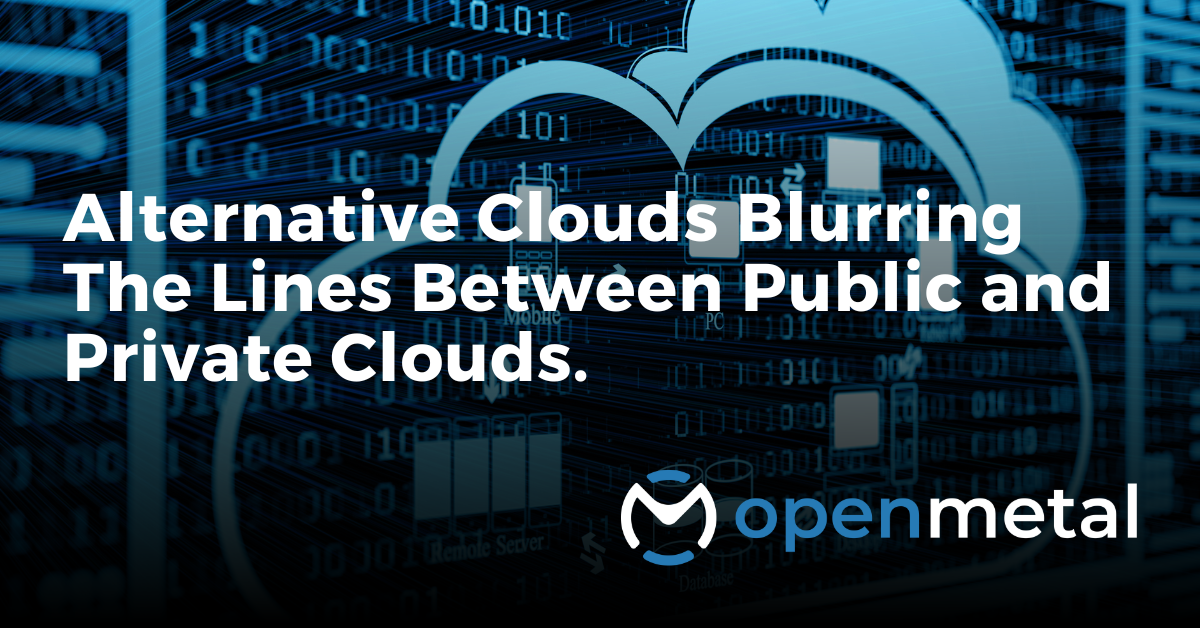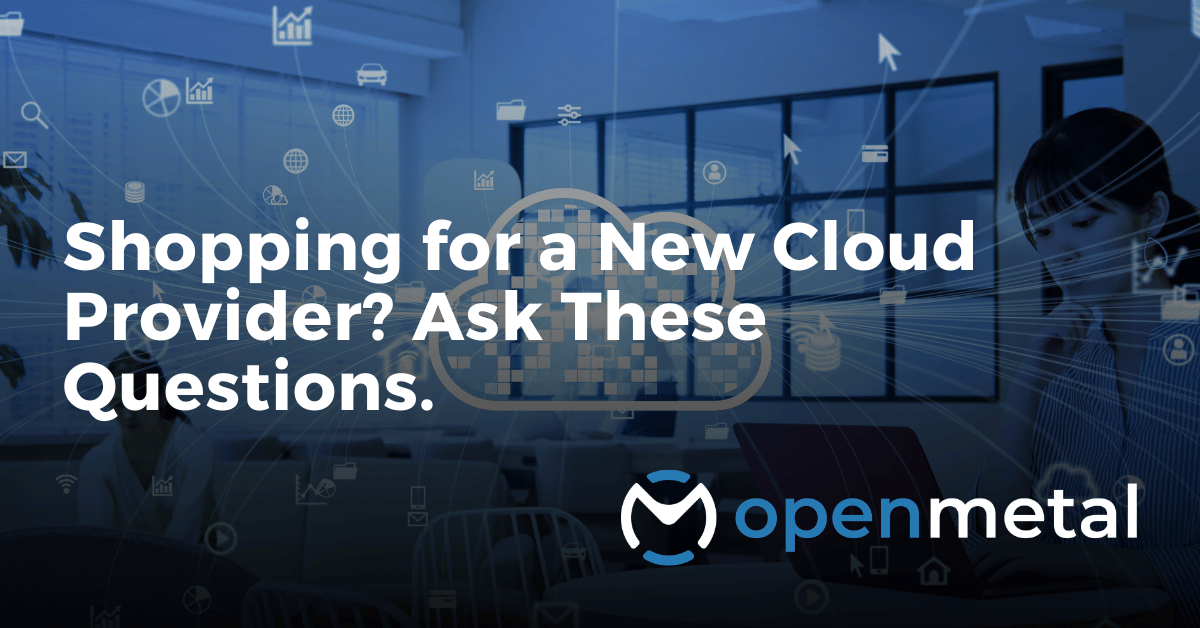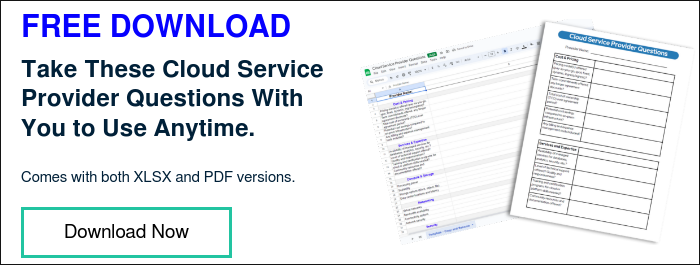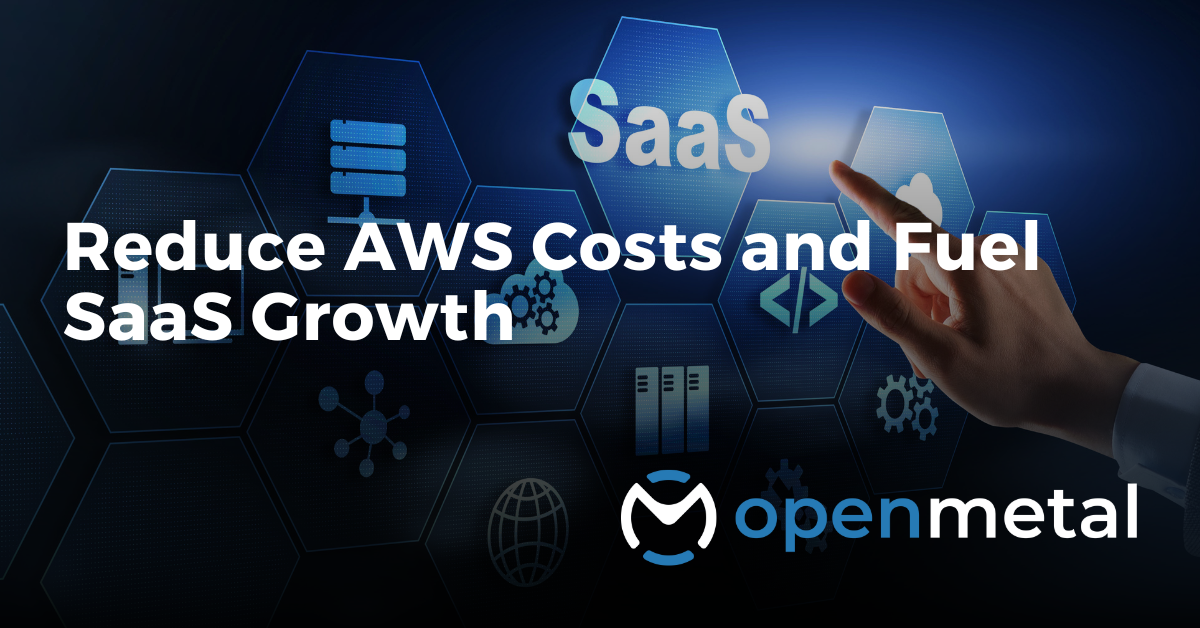Shopping around for a new cloud service provider (CSP) is an oft-daunting task that most companies will have to deal with at least once. This process usually involves reaching out to a handful or sometimes dozens of different providers, gathering information, getting quotes, trying to ensure that you ask all the right questions to make a good comparison and find the right fit for your organization. It can easily lead to a hodgepodge of hastily-scribbled notes and faint recollections of what one provider said versus another.
This article and accompanying downloadable aim to make this process a bit more organized! We’ve laid out various questions in different categories such as cost, capabilities, and support that you’ll likely want to ask every vendor you speak with.
Simply go through the checklist, record their responses, and build a side-by-side comparison document for each CSP. (Note that as we tried to build a thorough list, some of these questions may not be relevant to the cloud service you’re shopping for, so don’t forget to edit as needed beforehand!)
Now go forth into your vendor meetings confident you won’t forget to ask something important, knowing that you’ll glean all the information required to find the best cloud provider for your needs!
Cost and Pricing Questions
- Pricing models: pay-as-you-go, spot instances, fixed upfront, dynamic pricing, data ingress/egress rates, etc.
- Term commitments, any discounts for longer agreements
- Total cost of ownership (TCO) calculations
- Potential cost savings compared to on-premises infrastructure
- Billing and expense management tools
Services and Expertise Questions
- Availability of managed services for databases, analytics, security, etc.
- Technical support quality and responsiveness
- Training and certification programs for cloud or platform skills needed
- Community resources and documentation
Core Infrastructure Capability Questions
Necessity of these questions will likely vary depending on the cloud service you’re shopping for. Review and edit before using!
Compute and Storage
- Processing power
- Scalability
- Storage options (block, object, file)
- Data center locations and latency
Networking
- Virtual networks
- Bandwidth availability
- Connectivity options
- Network security
Security
- Compliance certifications
- Data encryption
- Threat detection and mitigation
- Identity and access management
Reliability and Scalability
- Uptime and performance guarantees
- Disaster recovery plans
- Ability to handle peak workloads
Management Tools
- Ease of deployment and management
- Automation capabilities
- Monitoring and reporting tools
Specific Use Case Questions
- Compatibility with existing applications and tools
- Support for demanding workloads and technologies: AI, machine learning, high-performance computing, big data
- Industry-specific compliance requirements or certifications
Additional Considerations
- Ease of data portability and migration to other providers, i.e. vendor lock-in
- Sustainability and environmental impact of the cloud provider’s operations
- Reputation and track record: experience, customer reviews, CSAT/NPS scores, history of security breaches and responses
Wrapping Up
Choosing a new cloud provider doesn’t have to be a headache. Forget the hasty notes and scattered memories – simply follow our checklist, record vendor responses, and build a clear comparison for each contender. Remember, tailor the questions to your specific needs and don’t hesitate to edit as needed. And don’t forget to download your questionnaires above to take with you!
Read More on the OpenMetal Blog
Cloud Deployment Models in 2024 – 6 Options for Modern Clouds
Cloud has matured dramatically in the last 10 years. In the beginning there were only a few cloud deployment model options. Today, in 2024, there are many easy and fast ways to get cloud.

It may be surprising to see large scale OpenStack use cases such as Walmart or China Mobile, or use cases in organizations like NASA who have stringent security regulations, but the ability of organizations to fine …Read More
Cloud Repatriation Options – On-Premise vs Colocation vs Hosted Private Cloud
More and more companies are facing the reality of high costs coming from their public cloud deployments. This has given rise to the concept of cloud repatriation.







































